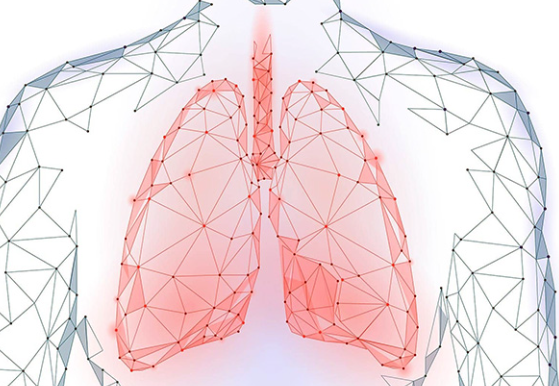By: Researcher Taymur
I’ve been a bookish kid throughout school. You know, the guy who loved the book and consumed a book a day when they had the opportunity. To my identity, reading and writing were so important that I could not think of a day passing without looking at a book.
Things changed when I went to college. I had less time to read for pleasure and academic reading was flooded. My ultimate aim was to look at more words.
At about the same time, my mental health began to fail, but it took me a long time to notice the difference. I always slipped through my fingers through the happiness of reading. When I was down, nothing gave me much joy; all too much work with too little pay.
I have earned more traumatic events than course credits as the school advances and my mental health has declined. Finally, a post-traumatic stress disorder (PTSD) diagnosis was given to me and I dropped out.
I had more time and energy to learn with enjoyment after I left the school. I noticed I couldn’t, unexpectedly.
It’s not to say that I didn’t get words or spell them, but it was extremely difficult to understand what I wrote basically, I was working as an author at the time.
Without understanding a word, I’ve found myself reading a paragraph again and again. Instead, I was mentally tired just after a few pages if I could really read and understand something.
It was a lifetime bookworm to me, a poet, a literary lover. I felt useless. I felt useless. Awful. I still felt I was out of touch with the bookish man. Not only did I try to read, I tried to enjoy it. It’s not only that. Who would have enjoyed such a huge task?
I was surprised to know that many of my colleagues, who also have mental health issues, had similar problems when I asked about what caused my sudden reading difficulties.
“I always believed it was the university’s having fun reading,” said one of my friends. “All of the rest of us had in common now, I’m pretty sure it’s tied to my PTSD. We were all guilty of learning difficulty.
Click Here to Visit the Store and find Much More….
Most of us felt we were lazy and stupid or not sufficiently persistent. I felt like a cheat in my case somebody who claimed he liked to read and write but could possibly not have read more than a few pages a day.
The books that I have bought and never read are sitting down in my stack, taunting me. There is an emotional reason, and we definitely aren’t alone. It is quite normal, according to psychologists, to impair the ability to read in mental diseases.
Alyssa Willamson, a trauma psychotherapist, says: “Trauma is an important factor in cognitive ability, concentration, ability to learn and even our capacity to read. “I often think customers have ADHD or anxiety, and often deal with trauma.”
But why exactly does trauma affect our readability? We first need to understand trauma to understand this.
If we sense risk, our body trains us to run, fly or freeze in order to protect ourselves against threat. The prefrontal cortex that for reading, mathematical knowledge and other in-depth work is the part of our brain is paused at the time.
“The system is disabled if someone has PTSD. The body doesn’t feel you’re safe anymore, regardless of how well you do, “says Williamson. “As a result, the brain behaves as if the dangerous activity occurs, produce a variety of physical symptoms and shut down the prefrontal cortex, which can lead to academics and learning.”
The way we deal with others can also be influenced by trauma. Because reading also involves empathy, and putting oneself in the shoes of the characters, trauma may be very difficult to manage.
Reading,’ says Mark Vahrmeyer, an integrative psychotherapist,’ is a higher function activity and it calls for us to allow ourselves to be absorbed within one another so that we can’ receive’ their communication.’
“If we have trauma that has not been handled. We can read the words on the page, mechanically, like a computer, but we can’t use them to have a sense of higher brain function.
It is also difficult] for us to imagine someone else’s mind… There is no’ other,’ but only threat in a dysregulated state of being overwhelmed, “said Vahrmeyer.
If we don’t deal with trauma, we are so exhausted that we fight to think, evaluate, and experience the characters and feelings we hear about.
Williamson not only tells you that PTSD can influence your reading ability. “In all sorts of diseases, concentration problems occur. Most of us know it will be hard to concentrate people with ADD and ADHD, but it is difficult to focus in a number of diagnoses.
This may include mood problems like schizophrenia or depression and almost all anxiety disorders, such as PTSD, OCD, common anxiety, and social anxiety. “Difficulty concentrate or read, particularly after unforeseen loss, is another popular accompaniment during grievances.”
The fine news? Many of these conditions can be treated, like PTSD. Therapy is an excellent starting point for Williamson and Vahrmeyer alike. Practice and use methods for coping that will support you.
And while you are focusing on recovery, you can do some things to improve your reading relationship:
1st is Stop tying your identity to reading books
2nd is Read books you actually like not you don’t like
3rd is Trying audiobooks it has a great impact
4th is Read smart and short stories, articles, poetry
Click Here to Visit the Store and find Much More….
For More Information Related to Fibromyalgia Visit below sites:
References:
Fibromyalgia Contact Us Directly
Click here to Contact us Directly on Inbox
Official Fibromyalgia Blogs
Click here to Get the latest Chronic illness Updates
Fibromyalgia Stores








